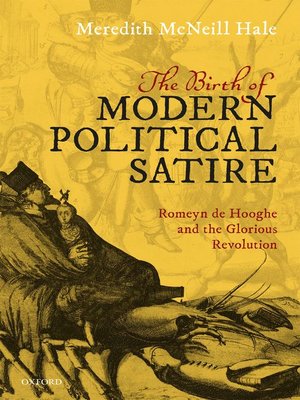The Birth of Modern Political Satire
ebook ∣ Romeyn de Hooghe and the Glorious Revolution
By Meredith McNeill Hale

Sign up to save your library
With an OverDrive account, you can save your favorite libraries for at-a-glance information about availability. Find out more about OverDrive accounts.
Find this title in Libby, the library reading app by OverDrive.



Search for a digital library with this title
Title found at these libraries:
| Loading... |
Political satire has been a primary weapon of the press since the eighteenth century and is still intimately associated with one of the most important values of western democratic society: the right of individuals to free speech. This study documents one of the most important moments in the history of printed political imagery, when political print became what we would recognise as modern political satire. Contrary to conventional historical and art historical narratives, which place the emergence of political satire in the news-driven coffee-house culture of eighteenth-century London, Meredith M. Hale locates the birth of the genre in the late seventeenth-century Netherlands in the contentious political milieu surrounding William III's invasion of England known as the 'Glorious Revolution'. The satires produced between 1688 and 1690 by the Dutch printmaker Romeyn de Hooghe on the events surrounding William III's campaigns against James II and Louis XIV establish many of the qualities that define the genre to this day: the transgression of bodily boundaries; the interdependence of text and image; the centrality of dialogic text to the generation of meaning; serialized production; and the emergence of the satirist as a primary participant in political discourse. This study, the first in-depth analysis of De Hooghe's satires since the nineteenth century, considers these prints as sites of cultural influence and negotiation, works that both reflected and helped to construct a new relationship between the government and the governed.






